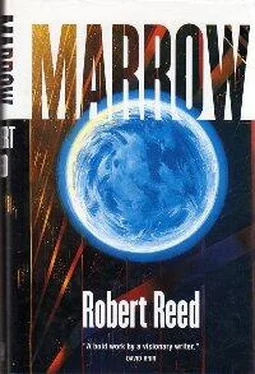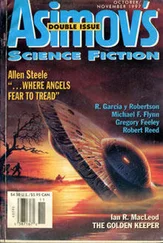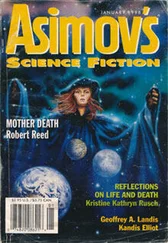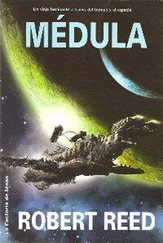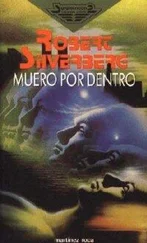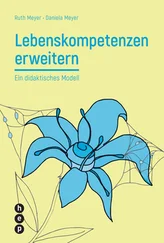Robert Reed - Marrow
Здесь есть возможность читать онлайн «Robert Reed - Marrow» весь текст электронной книги совершенно бесплатно (целиком полную версию без сокращений). В некоторых случаях можно слушать аудио, скачать через торрент в формате fb2 и присутствует краткое содержание. Год выпуска: 2000, ISBN: 2000, Издательство: Tor Books, Жанр: Фантастика и фэнтези, на английском языке. Описание произведения, (предисловие) а так же отзывы посетителей доступны на портале библиотеки ЛибКат.
- Название:Marrow
- Автор:
- Издательство:Tor Books
- Жанр:
- Год:2000
- ISBN:0-312-86801-4
- Рейтинг книги:5 / 5. Голосов: 1
-
Избранное:Добавить в избранное
- Отзывы:
-
Ваша оценка:
- 100
- 1
- 2
- 3
- 4
- 5
Marrow: краткое содержание, описание и аннотация
Предлагаем к чтению аннотацию, описание, краткое содержание или предисловие (зависит от того, что написал сам автор книги «Marrow»). Если вы не нашли необходимую информацию о книге — напишите в комментариях, мы постараемся отыскать её.
Marrow — читать онлайн бесплатно полную книгу (весь текст) целиком
Ниже представлен текст книги, разбитый по страницам. Система сохранения места последней прочитанной страницы, позволяет с удобством читать онлайн бесплатно книгу «Marrow», без необходимости каждый раз заново искать на чём Вы остановились. Поставьте закладку, и сможете в любой момент перейти на страницу, на которой закончили чтение.
Интервал:
Закладка:
“A desperate precaution,” the Master had dubbed this plan.
Later, as life on board the ship turned routine, the emergency routes were kept for other robust reasons.
As a form of testing, for instance.
Young, inexperienced captains were sent a coded message from the Master’s office. Were they loyal enough to obey the difficult order? Did they know the ship well enough to vanish for months or years? And most importantly, once they vanished, did they continue to act in responsible, captainly ways?
Simple bureaucratic inertia was another factor. Once established, escape routes were easily maintained. Miocene invested a few minutes each year to keep hers open, and she was probably much more thorough than most of her subordinates.
And the final reason was the unforeseen.
Since the Phoenixes, no one had tried to invade the Great Ship. But in a voyage that would circumnavigate the Milky Way, it didn’t pay to throw away any tool that might, in some unexpected way, help the Master’s hand.
What if the unforeseen had happened?
Miocene was sitting in a tiny cafe, safely disguised, when she noticed a dozen black-clad security officers interviewing the local foot traffic. A standard business in this kind of district, yes. But it made her wonder about the other captains. How many besides her had been called away by the Master’s explicit orders?
There was a temptation to use secret tools to count the missing. But her probes might be noticed and tracked, and ignorance was infinitely more seemly than being caught in someone’s clumsy net-Half of the security team was working its way toward the cafe. They were perhaps two hundred meters away when a dose of paranoia took hold of Miocene. She left her sausage cakes and iced coffee unfinished, but she rose to her feet with a casual grace, then chose the most anonymous direction before slipping out of sight. In this district, every avenue was a touch less than a hundred kilometers long, and it was exactly one thousandth as wide and one ten-thousandth as tall. There were a thousand identical avenues set carved into the local rock, aligned with a clean geometric precision.
The original guess, formulated by the first survey teams, was that these geometric relationships were fat with meaning. The ship’s builders were at least as clever as the people who had discovered it, and an accurate map of every room and avenue, fuel tank and rocket nozzle, would reveal an ocean of mathematical clues. Perhaps a genuine language could be built from all those intricate proportions. In simple terms, the Great Ship supplied its own explanation… if only enough data and enough cunning could be applied to this wondrous and slippery problem…
Miocene had always doubted that logic.
Cleverness was an uneven talent at best. Imagination, she believed, was something that would fool its owner, luring her to waste her time chasing every wishful possibility. That’s why she long ago predicted that no AI and no human, or any other sentient soul, would find anything particularly important in the ship’s architecture. This was one of those circumstances where the boring and the unclever provided the best answers. These thousand avenues, plus every other hollow place within the Great Ship, had been chiseled out by sterile machines following equally sterile plans. That would explain the repetitive, insect-like patterns.And more importantly, it offered a telling clue as to why no expedition had ever found the tiniest trace of left-behind life.
Not one alien corpse.
Or unexplained microbe.
Or even a molecular knot that was once someone’s once-dear protein.
Where imagination saw mystery, Miocene saw simplicity. Obviously, this ship was built not to travel between the stars, but to cross from galaxy to galaxy. Its designers, whoever they were, had employed sterile machines at every stage of construction. Then for reasons unknown, the builders never stepped on board their creation.
The easy guess was that some natural catastrophe had struck. Most likely it would be something vast, and horrific.
When the universe was young, and quite a bit denser, galaxies had the nagging habit of exploding. Seyferts. Quasars. Cascading series of supernovae. All were symptoms of a dangerous youth. There was ample evidence showing the Milky Way had a similar history. Life born in its youth was extinguished by the amoral pulse of gamma radiation: once, twice, or a thousand times.
What the dullest, most credible experts proposed—and what Miocene believed today without question—was that an intelligent species arose in the past, in some peaceful and extremely remote backwater.The species predicted the coming storm. A crash program of self-replicating machines were sent- to a jovian-class world, probably a world drifting inside a dusty nebula, far from any sun. Following simple, buglike programs, that world was rebuilt. Its hydrogen atmosphere was burned to give it velocity. Slingshot flybys added still more. But by the time it came streaking past the homeworld, there was no one left to save. Empty avenues waited for humanoids already killed by a Seyfert’s fire, and for the next several billion years, the ship waited, empty and patient, plying a blind course between galaxies, slowly degrading but managing to endure until it reached the Milky Way.
No one had ever indentified the parent galaxy.
Looking back along the ship’s trajectory, one couldn’t find so much as a dim dwarf galaxy that seemed a likely mother.
And there was also that nagging issue about the ship’s age.
Five billion years was the official verdict. A huge span, but comfortably huge, demanding no great rewriting of the universe’s early history.
The trouble was that the parent rock could be older than five billion years. Before it solidified, the granite and basalt were doctored. The telltale radionuclides had been harvested by some hyper-efficient means. To mask its age, or for some less conspiratorial purpose? Either way, it left the rock cold and hard, and it was just one means by which the ship’s builders had left behind a hard puzzle for today’s scientists.
Earnest, imaginative people, filled with cocktails and braver drugs, liked to claim that eight or ten or twelve billion years was a more likely age for the ship. And twelve billion years wasn’t the upper estimate, either. Enjoying the imponderables, they argued that this derelict had come from that fine distant sprinkle of little blue galaxies which covered the most distant skies, all born at the beginnings of time. How humanoids, or anything, could have evolved so early was left unanswered. But since mystery was their passion, they found this entire business more intoxicating than any drink.
Miocene didn’t enjoy vast questions or ludicrous answers, particularly when neither were necessary.
She saw a simpler explanation: the ship was a youthful five billion years old, and somewhere between galaxies, probably soon after its birth, its course was deflected by an invisible black hole or some unmapped dark-matter mass. That explained why it was an orphan in every sense.
Thinking otherwise was to think too much and to do it in the wrong places.
This had been an orphan and a derelict, and then human beings had found it.
And now it was theirs; was Miocenes, at least in part.
Walking that long, long avenue, Miocene smelled a hundred worlds. Humanoids and aliens of other shapes were enjoying the false blue sky, and most were enjoying one another. She heard words and songs and sniffed the potent musks of pheromonal gossips, and occasionally, as the mood struck, she would wander into one of the tiny shops, browsing like anyone with nowhere else to be.
No, she wasn’t as imaginative as some people.
In most circumstances, Miocene would make that confession, without hesitation. Yet in the next breath, always, she would add that she had imagination enough to revel in the ship’s majesty, and its cosmopolitan appeal, and sufficient creativity to help rule this very original and precious society.
Читать дальшеИнтервал:
Закладка:
Похожие книги на «Marrow»
Представляем Вашему вниманию похожие книги на «Marrow» списком для выбора. Мы отобрали схожую по названию и смыслу литературу в надежде предоставить читателям больше вариантов отыскать новые, интересные, ещё непрочитанные произведения.
Обсуждение, отзывы о книге «Marrow» и просто собственные мнения читателей. Оставьте ваши комментарии, напишите, что Вы думаете о произведении, его смысле или главных героях. Укажите что конкретно понравилось, а что нет, и почему Вы так считаете.
